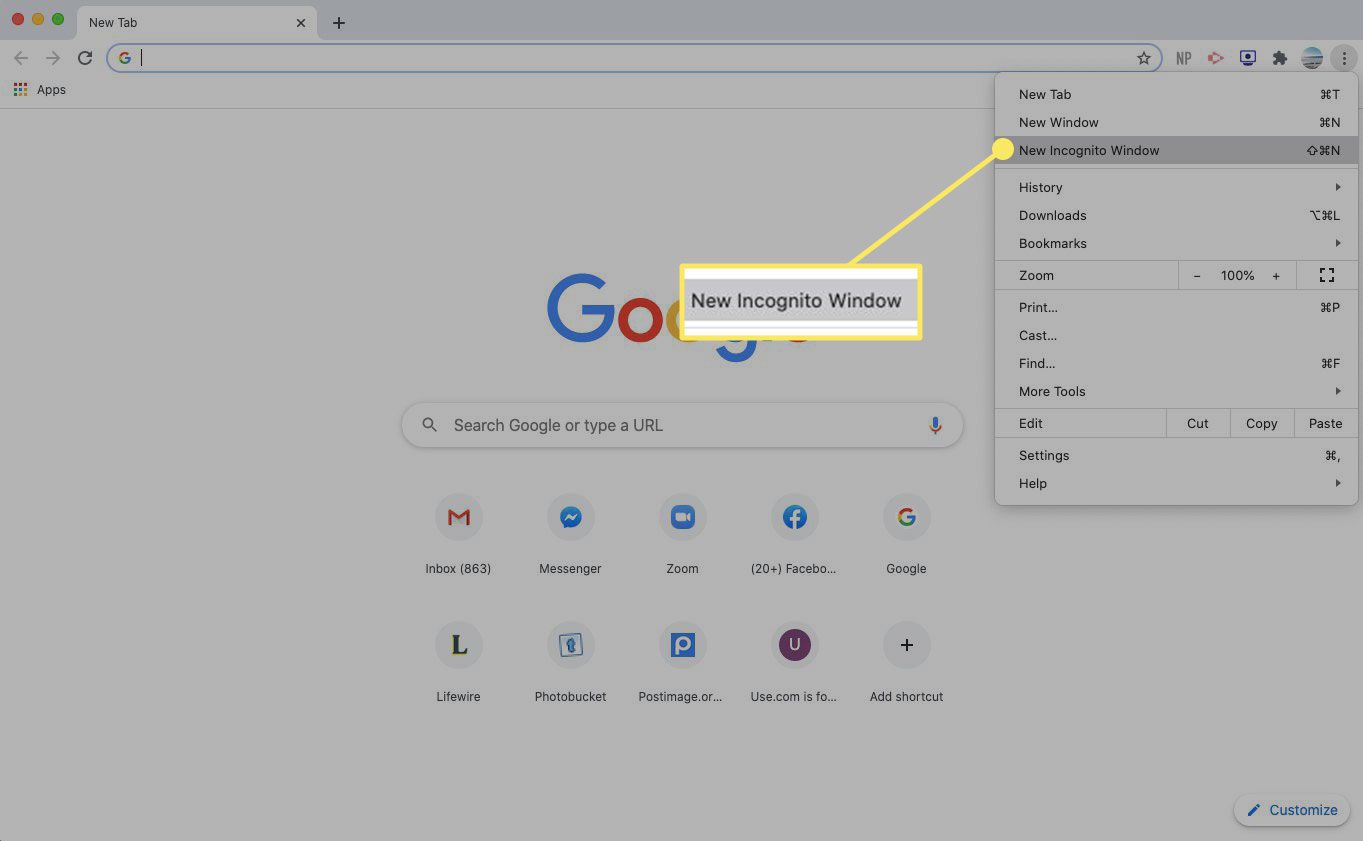Introduction
Internet browsers have become an integral part of our daily lives, serving as gateways to a wealth of information, entertainment, and communication. Whether you're conducting research, streaming your favorite shows, or staying connected with friends and family, the browser is your primary tool for navigating the digital world. However, have you ever wondered how many browser sessions you can have open at once? The answer isn't as straightforward as you might think.
In this article, we'll delve into the concept of internet browser sessions and explore the factors that influence the number of sessions you can effectively manage. We'll also provide practical tips for optimizing your browsing experience when juggling multiple sessions. By the end of this article, you'll have a clearer understanding of how to make the most of your browser's capabilities while avoiding common pitfalls associated with excessive session management.
Let's embark on a journey through the digital realm, where we'll unravel the mysteries of internet browser sessions and empower you to navigate the online landscape with confidence and efficiency.
Understanding Internet Browser Sessions
Internet browser sessions refer to the individual instances of a web browser being used to access websites or web applications. Each session is independent of the others, allowing users to simultaneously interact with multiple websites or online services. When you open your browser and begin navigating the internet, you initiate a session. This session encompasses all the tabs, windows, and activities within the browser during that particular browsing session.
Each browser session maintains its own set of data, including cookies, cache, and browsing history. This segregation of data ensures that activities in one session do not interfere with those in another. For example, if you're logged into a social media account in one browser session, opening a new session or incognito window won't automatically log you out. This separation also enables users to maintain distinct sets of preferences, bookmarks, and saved passwords across different sessions.
Furthermore, browser sessions play a crucial role in preserving privacy and security. By isolating data between sessions, browsers help prevent cross-site tracking and minimize the risk of unauthorized access to sensitive information. This segregation also facilitates multitasking, allowing users to compartmentalize their online activities and switch between different tasks seamlessly.
Understanding the concept of browser sessions is essential for optimizing your browsing experience. It enables you to leverage the browser's capabilities effectively, manage your online activities efficiently, and maintain a clear delineation between various tasks and interests. As we delve deeper into the intricacies of browser sessions, you'll gain valuable insights into maximizing the potential of your preferred web browser.
Factors Affecting the Number of Open Sessions
The number of open browser sessions that you can effectively manage is influenced by several key factors, each playing a significant role in determining the optimal balance between productivity and performance. Understanding these factors is essential for navigating the complexities of multitasking in the digital realm. Let's explore the primary elements that impact the number of open browser sessions:
-
System Resources: The capabilities of your device, including its processing power, memory, and storage, directly influence the number of browser sessions you can handle simultaneously. A robust computer with ample RAM and a fast processor can accommodate a greater number of open sessions without experiencing significant slowdowns or performance issues.
-
Browser Efficiency: Different web browsers vary in their efficiency and resource management. Some browsers are designed to handle multiple sessions more effectively, utilizing system resources more efficiently and minimizing the impact on overall performance. Understanding the capabilities of your preferred browser can help you make informed decisions about the number of sessions to maintain.
-
Web Content Complexity: The nature of the websites and web applications you access in each session can impact the overall system load. Content-rich websites, multimedia streaming, and interactive web applications may consume more resources, limiting the number of concurrent sessions that can be managed without compromising user experience.
-
Network Bandwidth: The speed and stability of your internet connection play a crucial role in determining the feasibility of managing multiple browser sessions. Bandwidth limitations can affect the responsiveness of web pages, impacting the overall browsing experience when juggling numerous open sessions.
-
User Preferences and Comfort: Personal preferences and individual comfort levels also influence the number of open sessions a user can effectively manage. Some individuals may feel overwhelmed with too many open tabs and windows, while others thrive in a multitasking environment. Understanding your own comfort zone is essential for optimizing your browsing experience.
By considering these factors, users can make informed decisions about the number of browser sessions to maintain, ensuring a seamless and efficient online experience while avoiding unnecessary strain on system resources. As we continue our exploration of browser sessions, we'll delve into practical strategies for managing multiple sessions effectively, empowering users to strike a harmonious balance between productivity and performance.
Recommended Number of Open Sessions
Determining the optimal number of open browser sessions is a nuanced endeavor, influenced by a myriad of factors that intersect with individual preferences and technological capabilities. While there is no definitive one-size-fits-all answer, understanding the recommended guidelines can provide valuable insights for users seeking to strike a balance between productivity and performance.
For most users, maintaining a moderate number of open browser sessions is advisable. This typically ranges from 5 to 10 concurrent sessions, encompassing a mix of tabs and windows. By adhering to this guideline, users can effectively multitask, accessing diverse websites and web applications without overburdening system resources or compromising browsing performance.
The rationale behind this recommendation lies in the practical limitations of multitasking within the digital environment. While modern web browsers and computing devices are increasingly powerful, excessive multitasking can lead to diminished user experience, including slower page loading times, increased memory consumption, and potential system instability. By adhering to a moderate number of open sessions, users can navigate the internet with agility and efficiency, leveraging the browser's capabilities without overwhelming the underlying hardware and network infrastructure.
It's important to emphasize that the recommended number of open sessions is not a rigid constraint but rather a flexible guideline that can be tailored to individual preferences and technological capabilities. Users with high-performance computing devices and robust internet connections may find that they can comfortably manage a greater number of open sessions without experiencing significant drawbacks. Conversely, individuals using older or less powerful devices may need to exercise greater discretion when juggling multiple browser sessions.
Ultimately, the recommended number of open sessions serves as a practical benchmark, offering users a starting point for optimizing their browsing experience. By considering this guideline alongside their own comfort levels and technological constraints, users can navigate the digital landscape with confidence, striking a harmonious balance between multitasking and performance.
As we continue to explore the intricacies of browser sessions, it's essential to recognize that the recommended number of open sessions is a dynamic concept, evolving alongside advancements in technology and user behaviors. By remaining mindful of these recommendations and adapting them to their unique circumstances, users can harness the full potential of their web browsers while maintaining a seamless and efficient browsing experience.
Tips for Managing Multiple Browser Sessions
Managing multiple browser sessions effectively is essential for optimizing your online productivity and maintaining a seamless browsing experience. Whether you're juggling work-related tasks, conducting research, or simply exploring the vast expanse of the internet, implementing practical strategies for managing multiple sessions can enhance your efficiency and overall browsing experience. Here are some valuable tips to help you navigate the complexities of multitasking within your web browser:
-
Organize Tabs and Windows: Utilize browser features such as tab groups, bookmarks, and window management to organize your open sessions. Group related tabs together, categorize them with intuitive labels, and arrange windows based on task-specific workflows. This approach can streamline your browsing experience, making it easier to switch between different tasks without feeling overwhelmed by cluttered tabs and windows.
-
Utilize Session Management Extensions: Explore browser extensions designed to facilitate session management. These extensions enable you to save and restore sets of tabs, allowing you to create distinct browsing sessions for specific purposes. By leveraging session management extensions, you can seamlessly transition between different sets of tabs, maintaining a clear separation between various tasks and interests.
-
Optimize System Resources: Monitor system resource usage to ensure that your open sessions do not unduly strain your device's capabilities. Keep an eye on memory and CPU usage, especially when managing multiple content-rich websites or web applications. Closing unused tabs and windows can help conserve system resources, preventing unnecessary slowdowns and performance issues.
-
Leverage Incognito Windows for Isolated Sessions: Consider using incognito or private browsing windows for specific tasks that require isolated sessions. This approach can be particularly useful for activities that involve sensitive information, temporary research, or accessing websites with distinct user profiles. By utilizing incognito windows strategically, you can maintain a clear separation between your regular browsing sessions and specialized tasks.
-
Stay Informed About Browser Features: Familiarize yourself with the advanced features offered by your preferred web browser. Many modern browsers provide built-in tools for managing multiple sessions, including tab pinning, session restore options, and workspace organization. By staying informed about these features, you can harness the full potential of your browser, optimizing your multitasking capabilities.
-
Regularly Clear Browsing Data: Periodically clear your browsing history, cookies, and cache to maintain optimal browser performance. Accumulated browsing data can impact the responsiveness of your browser, especially when managing multiple sessions over an extended period. Clearing this data can help refresh your browser, ensuring a smooth and efficient browsing experience.
By implementing these tips, you can navigate the complexities of managing multiple browser sessions with confidence and efficiency. Whether you're striving for enhanced productivity in your professional endeavors or seeking to streamline your personal browsing activities, these strategies can empower you to make the most of your web browser's multitasking capabilities. Embrace these tips as valuable tools in your digital toolkit, enabling you to conquer the online landscape with agility and finesse.
Conclusion
In the ever-expanding digital ecosystem, the management of multiple internet browser sessions has emerged as a pivotal aspect of online productivity and efficiency. As we conclude our exploration of browser sessions, it's evident that the optimal balance between multitasking and performance hinges on a nuanced interplay of technological capabilities, user preferences, and practical guidelines.
By unraveling the complexities of browser sessions, we've gained valuable insights into the factors that influence the number of open sessions that can be effectively managed. From system resources and browser efficiency to web content complexity and user comfort levels, these elements form the foundation upon which users can navigate the digital landscape with confidence and clarity.
The recommended number of open sessions serves as a practical benchmark, offering users a starting point for optimizing their browsing experience. While the guideline of maintaining a moderate number of open sessions provides a valuable framework, it's essential to recognize that individual circumstances and technological capabilities may warrant tailored approaches to session management. Users are encouraged to leverage this recommendation as a flexible guideline, adapting it to their unique needs and preferences while remaining mindful of the potential impact on system resources and browsing performance.
As we look to the future of browser sessions, it's imperative to embrace practical strategies for managing multiple sessions effectively. By organizing tabs and windows, leveraging session management extensions, optimizing system resources, and staying informed about browser features, users can enhance their multitasking capabilities while maintaining a seamless and efficient browsing experience. These strategies serve as invaluable tools, empowering users to navigate the complexities of multitasking within their web browser with finesse and agility.
In essence, the concept of internet browser sessions transcends mere technicalities, embodying the dynamic interplay between user behavior, technological advancements, and the evolving landscape of the digital realm. By embracing a holistic understanding of browser sessions and implementing practical strategies for session management, users can harness the full potential of their web browser, navigating the online landscape with confidence and efficiency.
As we bid farewell to this exploration, let us carry forward the insights gained, empowering ourselves and others to embark on a seamless and productive journey through the boundless expanse of the internet, where the management of browser sessions becomes a harmonious symphony of multitasking prowess and browsing finesse.

























